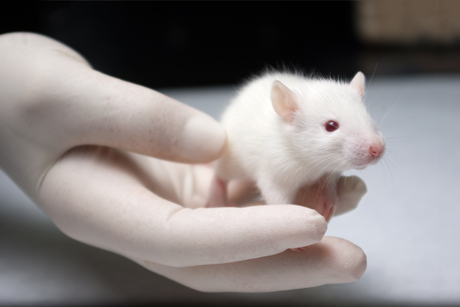Preliminary Evidence That Anti-Inflammatory Celecoxib Helps in Bipolar Depression
A study currently in progress indicates that the anti-inflammatory COX-2 inhibitor celecoxib (better known as the arthritis treatment Celebrex) may aid in the treatment of bipolar depression. In a panel session on inflammation at the 2015 meeting of the Society of Biological Psychiatry, researcher Angelos Halaris reported results from the first 26 participants.
Participants were taking mood stabilizers for bipolar disorder and became depressed. They received either 20mg/day of the selective serotonin reuptake inhibitor antidepressant escitalopram (Lexapro) plus either 200mg twice a day of celecoxib or placebo for a total of eight weeks. Those participants who received celecoxib showed greater and more rapid reductions in depression symptoms than those who received placebo.
The study will continue, and Halaris and colleagues will also observe whether measures of inflammation in patients’ blood are correlated with the patients’ responsiveness to the combined treatment with escitalopram and celecoxib.
Anti-Inflammatory Treatment Prevents the Effects of Stress in Female Rats
Women are more likely than men to experience depression, and this difference begins in adolescence, when girls show more sensitivity to stress. Researchers are studying how animals react to stress in the hopes of learning what mediates these gender differences in mental illness.
At a recent scientific meeting, researcher Jodi Lukkes and colleagues presented a recent study of stress and inflammation in female rats. The rats were exposed to different types of stressors. Some were separated from their mothers for four hours a day during the first 20 days of their lives. Later, some rats were exposed to an acute stressor, witnessing another rat receiving shocks. All the rats were placed in a box in which they could escape a shock by jumping to the other end of the box, in order to measure their motivation. Because drugs that inhibit the inflammatory enzyme COX-2 had reversed the effects of maternal separation in earlier studies, the researchers also treated some rats with these anti-inflammatories.
The researchers found that anti-inflammatory treatment could prevent behavioral consequences of stress in adolescent female rats. Witnessing another rat being shocked brought about deficits in motivation (a depression-like behavior), but in rats that had received treatment with a COX-2 inhibitor, these deficits were reduced. The COX-2 treatment was only helpful to rats that had experienced an acute stressor in their lifetime, either maternal separation in infancy, or witnessing another rat receive the shocks. A history of stress was required for the anti-inflammatories to improve motivation.
Lukkes and colleagues hope that this research begins to clarify the relationship between stress, inflammation, and gender. This may eventually lead to new targets in the treatment of depression.
Antibiotic Minocycline Could Improve Bipolar Depression
In an abstract presented at the 2013 meeting of the Society of Biological Psychiatry, Iosifescu et al. reported that the antibiotic minocycline, which has showed anti-inflammatory, neuroprotective, and mitochondrial-sparing effects in animal models, brought about improvement in patients with bipolar depression. Doses of 100mg to 300mg per day were successful in this small open study.
There are some positive placebo-controlled data in patients with schizophrenia who were prescribed this antibiotic. However, until now it had not been studied in bipolar disorder. The preliminary data reported here suggest that controlled double-blind studies of this agent are needed in bipolar depression.
The abstract (#497) can be found in the 2013 convention supplement (9S) to the journal Biological Psychiatry.
Anti-inflammatory Celecoxib Improved Depression When Added to Escitalopram
Research has previously shown a link between stress, inflammation, and mood diorders. Anti-inflammatory treatments are now being explored for depression. In an abstract presented at the 2013 meeting of the Society of Biological Psychiatry, Nadia Alvi et al. reported that the commonly used anti-inflammatory COX-2 inhibitor celecoxib (Celebrex) showed better antidepressant effects than placebo when added to the selective serotonin reuptake inhibitor (SSRI) antidepressant escitalopram (Lexapro) in an 8-week study.
While this research has not yet been peer-reviewed, it can be found in the 2013 convention supplement (9S) to the journal Biological Psychiatry as abstract #661.
Editor’s Note: These data are consistent with an emerging literature that shows there are increases in signs of inflammation in both unipolar and bipolar depression. It remains to be determined whether those patients whose blood shows markers of inflammation (such as increases in C-reactive protein (CRP), interleukins 1 and 6, and TNF-alpha) are more likely to respond to anti-inflammatory treatment than patients in general.
Inflammation and Anti-Inflammatories in Depression
Depression is often associated with increases in markers of inflammation in blood, which include IL-1, IL-6, TNF-alpha, and CRP. Risk factors for increased inflammation include stress, obesity, a diet high in omega-6 fatty acids, sedentary lifestyle, social isolation, low socio-economic status, smoking, and being female. Treatments such as lithium, other mood stabilizers, and antidepressants can all have anti-inflammatory effects.
At the International Congress of Neuropsychopharmacology in 2012, researcher Michael Berk reviewed data on inflammation in depression. Berk shared prospective data that in the general population, people whose levels of CRP fall within the highest third have the highest risk for a new onset of depression over the next 9 years, while those with CRP values in the lowest third (indicating low inflammation) had the least likelihood of becoming depressed.
Drugs with more direct anti-inflammatory properties are beginning to be studied in unipolar depression with some success. In a trial by Abbasi et al. published in the Journal of Affective Disorders in 2012, the anti-inflammatory COX-2 inhibitor celecoxib (Celebrex) when added to the selective serotonin reuptake inhibit (SSRI) sertraline (Zoloft) had better antidepressant effects than the addition of placebo.
Sepaujnia et al. reported in Neuropsychopharmacology in 2012 that an anti-diabetes drug that also has anti-inflammatory properties, pioglitazone (Actos), also beat placebo in depression.
Laan et al. reported in the Journal of Clinical Psychiatry that the same was true of acetylsalicylic acid (ASA or aspirin).
Finally, Berk summarized data that the class of cholesterol-lowering drugs called statins are also able to decrease CRP and improve or prevent depression. Epidemiological data by Pasco et al. published in Psychotherapy and Psychosomatics showed that subjects without depression were less likely to develop a new onset of depression if they were treated with statins compared to those who were not. Stafford et al. reported in the Journal of Clinical Psychiatry in 2010 that patients taking statins had a 79% decreased likelihood of depression at 9 months of follow-up. A third study in Sweden showed that simvastatin, a lipophilic (fat-soluble) drug that can readily enter the brain, decreases the incidence of depression more than some of the non-lipophilic statins.
Moreover, a meta-analysis by O’Neil et al. reported that overall, statins had positive effects on mood.
Editor’s Note: All these data come from studies of unipolar depression, so one must consider how relevant they are to bipolar depression. They may be pertinent, since elevated inflammatory markers have consistently been reported in bipolar depression. However, this cannot be assumed until appropriate studies are performed. (As usual, research in bipolar depression lags far behind that in unipolar depression.)
Preliminary uncontrolled retrospective data from one study did suggest that those treated with lithium plus aspirin did better than those on lithium and no anti-inflammatory.
Thus it may make sense for unipolar and bipolar depressed patients with risk factors for heart disease such as a positive family history of heart disease and elevated cholesterol and triglycerides to discuss with their doctors the possibility of starting statin treatment earlier rather than later. This is because depression itself is a major risk factor for heart disease, so statins might lower risk both by their approved indication of lowering cholesterol and by their apparent ability to help fend off new episodes of depression.
A more complicated issue would be the question of when, if at all, to use primary anti-inflammatory drugs in the adjunctive treatment of unipolar or bipolar depression. Read more






